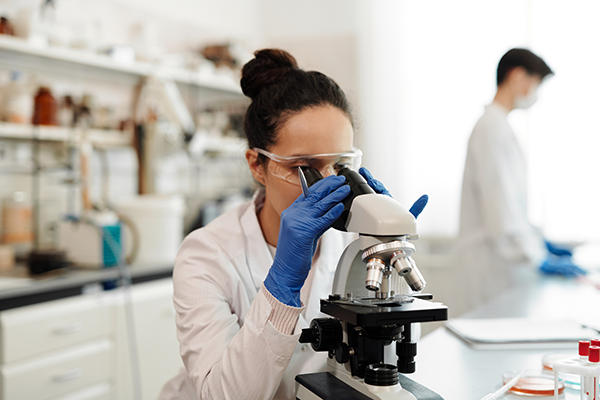The day started with Steve Bates of the UK Bioindustry Association highlighting that COVID-19 has quickly transformed the life science industry in many ways, forcing us to move fast, seek collaborations across the UK and invest in innovation.
Innovation through data
Dave Tudor, Managing Director of the Medicines Manufacturing Innovation Centre (MMIC), echoed the collaboration message, confirming that Scottish organizations are working together to create innovation through data. Whether it’s managing data from patients, or data management to improve process efficiency, “the ability to manage data is key for successful innovation”, he highlighted.

The ability to use data more effectively to improve outcomes was discussed in a number of settings. From supply chain manufacturing to generate more sustainable production to clinical trials, where capturing real-time data from the patient and using that data to predict outcomes and make better treatments is now no longer a thing of the past. In digital diagnostics smart use of data is almost certainly improving the quality of intervention. Steph Wright (The Data lab) highlighted the role that Artificial Intelligence is currently playing in radiology and cancer imaging to identify cancers that are simply too difficult for the human eye to recognize.
The Holy Grail of Health Innovation
The session : “Data – The Holy Grail of Health Innovation” discussed the potential to drive innovation in the healthcare system through health data. As we’ve heard many times over the past few years, it’s not the quality or quantity of Scottish health data that’s an issue. It’s the fragmented nature of it.
We heard the panel discuss common challenges such as different systems, locations, owners, and processes. Until data flows are connected more easily between health boards, the Scottish NHS will not be able to realise the full potential of its data.
The importance of digital technology to the NHS was also a key session theme, with one-panel member calling it a “win: win scenario: A win for the patients, NHS, Scottish economy and indeed the technology companies themselves”. While technology is vital, the panel believed it’s the vision of the people and practitioners that is key. Digital technology won’t replace face-to-face healthcare but perhaps act as a triage point for those who may not even realise they’re at risk.

Connected data
“Connected data” was discussed as a vital step in the digitalisation of lab-based processes. A key driver for digitalising such processes is to bring medicines to market faster and at a lower cost. Barry Heavey, from Accenture, quoted “speed and flawlessness (not making the same mistake again)” as the necessary criteria for making this happen.
Lastly, predictive analytics was mentioned as critical to helping the industry continue to innovate and drive healthcare forward. Before organisations can make the leap to predictive processes, however, “getting the basics done in labs” connecting systems and removing data silos was a key takeaway.
We’re always pleased to see the digital and data getting the recognition they deserve as key growth drivers in the industry. We found the sessions extremely interesting and insightful – thanks to The Scotsman for another great virtual event this year!






